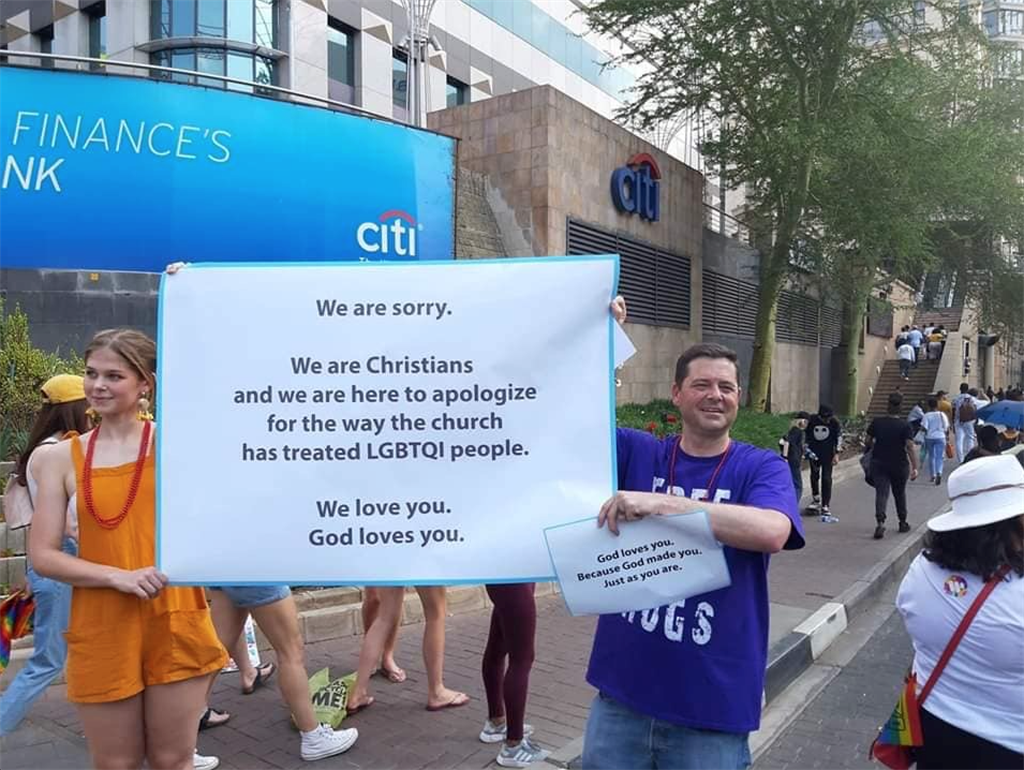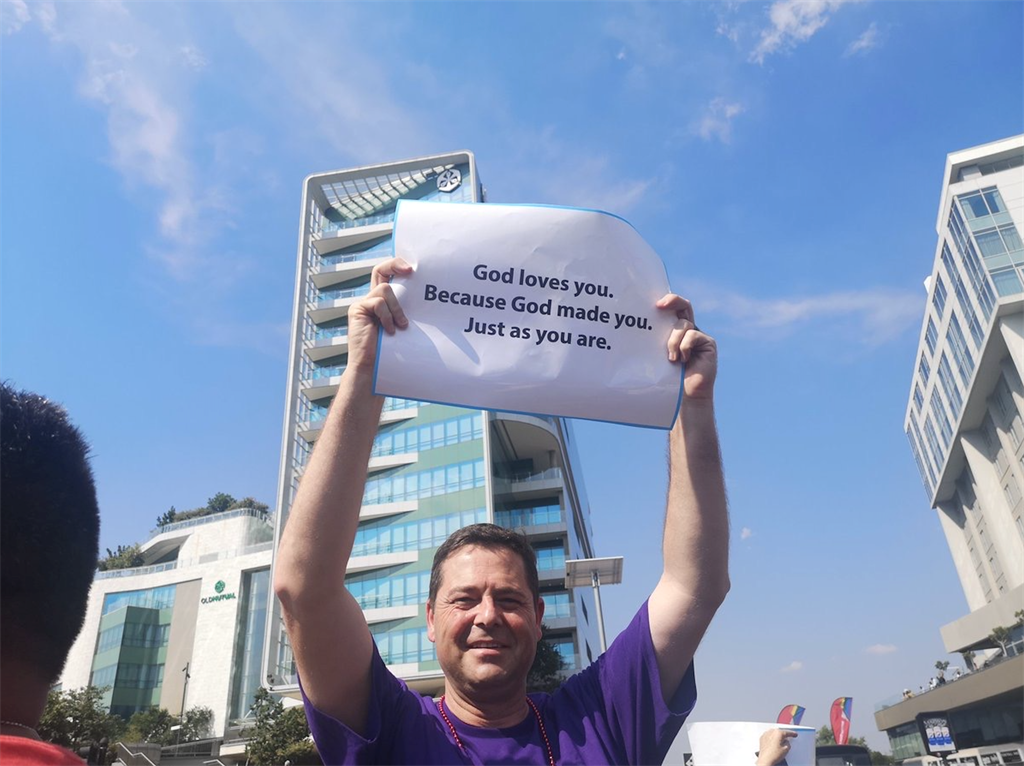Graeme Codrington is ’n scenariobeplanner, toekomskundige en teoloog.
Op sy webblad www.futurechurchnow.com skryf hy die volgende:
This is the home of Graeme Codrington’s musings on the future of Christianity.
I am an amateur theologian. … I do have three theological degrees (as well as two commercial ones). …
I was ordained as a minister in the Baptist Union of South Africa, but have since left the denomination. I have been a youth pastor at two churches, and was the official preacher at another. I was publisher and editor of a Christian magazine, The Edge, …. I have been a regular contributor, …, to many Christian magazines and publications, and have had papers published in a number of peer reviewed academic journals. I still preach and teach at churches …
I am now a strategy consultant for organisations of all types, helping them understand the disruptive forces that are changing the shape of the world around us. …. I am a futurist, author, researcher, consultant, board advisor and professional speaker.
I have published six books, …. I am currently in the process of completing a book on Christians, the Bible and Same Sex Marriages.
You can find out more about what I do professionally at my website: http://www.graemecodrington.com or my company website, TomorrowToday Global.
… I am a follower of Jesus the Christ and his Way of living and being in the world. I believe his “good news” is for all people and should make a difference in this world and the next.
Contact me at graeme@futurechurchnow.com
Hy is ’n LGBTQIA+ aktivis. Google gerus “graeme codrington homosexuality“. (Kyk ook die artikel hieronder.)
In ’n Facebook gesprek in 2018 het Codrington na homself verwys as ’n “progressive Christian”. Hy is gevra oor sy sienings oor vier teologiese kwessies. Dit is hoe hy geantwoord het:
1. Homosexuality
I believe, on the basis of intensive biblical study, that God makes some people gay and blesses their marriages in the same way he blesses heterosexual unions.
2. Salvation: Who goes to heaven and who goes to hell (if hell exists)
I believe that everyone who is in heaven is there only because of what Jesus did for them on the cross. There are many people there, however, who did not process Jesus as their saviour – for example, all the people in the Old Testament who make it into heaven. I therefore do not believe that people need to make the decision to believe in Jesus while they live on earth – I don’t know how this works, but I guess we all get a chance to meet the real Jesus when we arrive in heaven, and can choose at that point. If we choose against Jesus, God honours our choice.
3. Existence of Satan as a real being
I believe in fallen angels, who are led by the ex Angel of Light, Lucifer. I suppose this is what you mean by “Satan”. But if you’re being more technical, the Bible only ever refers to “the Satan” or “the Accuser” as in Job. I don’t think that’s referring to a specific entity.
4. Physical resurrection of Jesus. Did it happen?
Absolutely. Jesus lived, died, rose again, will come again.
*****
Landisa: I’m a qualified pastor. Here’s why I went to Johannesburg Pride | News24
Graeme Codrington
08 November 2019
My name is Graeme Codrington, and I am married to Jane. On Saturday, October 29, we supported the Johannesburg Pride Parade by wearing t-shirts with the words “free dad hugs” and “free mom hugs” printed on them.
Both Jane and I grew up as Christians believing that homosexuality was sinful. Today, however, we don’t believe that anymore.
Today we believe that God created LGBTQI people in His image, that God loves them as they are, and that it is our responsibility to show love to them too.
Jane and I grew up in a church environment that was very conservative – not allowing women to lead, and openly against homosexuals. As we grew older, however, we met people from other traditions and especially got to know some wonderful women leaders. Jane herself studied theology and became a pastor.
Alongside our changing views about women, we also became aware of other justice issues related to all forms of diversity, from race to sexual orientation. We didn’t actually have any particular “aha” moment changing our view on LGBTQI people and the church. We just slowly became friends with more and more gay people, and saw wonderful examples of relationships and marriages in the gay community.
We saw many gay people committed to the Christian faith and living it out in meaningful ways. We simply couldn’t continue to reconcile the views we once held with our lived experiences.
We realise that many people in the LGBTQI community are not interested in Christian expressions of love towards them. They’ve been so hurt and rejected by the church, that they understandably want nothing to do with it. But we thought that it might be something worthwhile to show our support at the Johannesburg Pride parade a few weeks ago.

We obviously didn’t want to offend or trigger anybody by attending the parade, but we wanted to find some way to begin undoing the history of hatred by the church. So, we thought that we would attend the parade carrying banners of support. We approached the Pride organisers and they welcomed this.
So many people in the LGBTQI community have felt rejected by their own parents and family after coming out, and this is something very painful to them. My wife and I decided to get dad and mom hugs t-shirts made, and stood along the Pride Parade route to offer free hugs to anyone who wanted them.
We were joined by members of churches across Johannesburg who held up banners to apologise for the way the church has treated LGBTQI people in the past, and to express our love and acceptance of them now.
The response from the people in the parade was wonderful. I think people thought that we were “typical” Christians at first, but when they saw our signs and the message of love, they cheered, waved and showed love back to us.

Many people came to hug us, some with tears as they told us that they had never heard this message of acceptance from the church before. We have been shocked to discover just how many LGBTQI people are rejected by family, and how this leads many of them to depression and suicide.
I know I can’t solve the deep pain, but I hope that our messages of support and our hugs let people in the LGBTQI community know that they are valued members of society, that they are seen for who they are, and that they are accepted.
We live on a continent that still has a very bad record in how it treats LGBTQI people, and we can all be part of showing a different way: a way of love, acceptance, affirmation and inclusion.